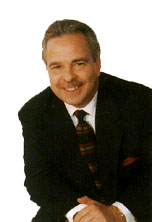Choose Balance Over Quantity By Zig Ziglar
For some strange reason there are millions of us who believe that if a little of something is good for us, a lot would be even better. Sometimes that is true, but frequently it is not.
For example, if a non-swimmer has fallen into water over his head, if you throw him one end of a rope, that’s good. If you throw him both ends of the rope, that’s bad.
In physical fitness, many people believe that if jogging two miles a day is good for you, ten miles would be better. Many people believe that if one particular medication once a day is good for them, two should be twice as good.
 “You’ve got to learn to lose in order to win” sounds like strange advice, but the man who says it has earned over three hundred million dollars. Even in today’s economy, that’s a considerable sum of money. Here’s the story.
“You’ve got to learn to lose in order to win” sounds like strange advice, but the man who says it has earned over three hundred million dollars. Even in today’s economy, that’s a considerable sum of money. Here’s the story. How do you achieve self-mastery? Mastery comes from confidence. Confidence comes from experience. Experience comes from practice. Practice comes from commitment. And commitment comes from vision. Please read that last paragraph again. Then do the arithmetic backward and you have a roadmap to success. And notice that it all starts with vision.
How do you achieve self-mastery? Mastery comes from confidence. Confidence comes from experience. Experience comes from practice. Practice comes from commitment. And commitment comes from vision. Please read that last paragraph again. Then do the arithmetic backward and you have a roadmap to success. And notice that it all starts with vision. It wasn’t until about 25 years ago that I realized how simple it really is to be happy. Notice I didn’t say it’s always easy—although it often is that too!
It wasn’t until about 25 years ago that I realized how simple it really is to be happy. Notice I didn’t say it’s always easy—although it often is that too!
 Yes, there is magic in positive thinking! In aviation, the word attitude means the angle at which the plane meets the wind, whether the wings are level with the horizon, and whether it is climbing or descending. The pilot who fails to take responsibility for the attitude of his aircraft is in serious trouble. And likewise, any person who has not taken charge of his or her own beliefs and attitudes runs a similar risk.
Yes, there is magic in positive thinking! In aviation, the word attitude means the angle at which the plane meets the wind, whether the wings are level with the horizon, and whether it is climbing or descending. The pilot who fails to take responsibility for the attitude of his aircraft is in serious trouble. And likewise, any person who has not taken charge of his or her own beliefs and attitudes runs a similar risk.